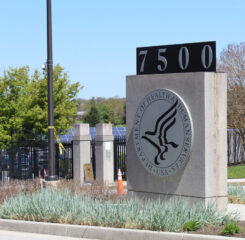CAST Case Study: Connecting Older Adults with Memory Loss to High School Students
A recent LeadingAge CAST case study, “Creating a Real-Life Video Experience for Individuals Facing Memory Loss,” describes an innovative partnership that brought together a memory support center, a technology company, and high school students to foster intergenerational relationships and use technology to aid in memory recall.
This project was designed to bridge the gap in relationships between older adults with memory impairment and fast-paced millennial high school students. The relationships formed were designed to break through cross-generational and intellectual barriers—and prepare students for experiences they may have in the future with loved ones, neighbors, and clients as they continue to grow, enter college, and choose their own careers.
Partners
LeadingAge CAST Patron Evangelical Homes of Michigan Senior Solutions (EHM) is known for its technology-advanced programs that serve individuals with memory loss or memory impairment. These programs strive to normalize the aging process and the impact of declining memory. Since 2010, they have remained at full capacity, caring for nearly 800 people affected by memory impairment, primarily residents of Michigan’s Washtenaw County and city of Saline. EHM serves 6,000 seniors each year.
LeadingAge CAST Supporter It’s Never 2 Late (iN2L) is a national technology provider based in Centennial, CO, that focuses on creating client engagement and life-enriching experiences for people with dementia, Alzheimer’s disease, and generalized memory impairment.
Saline Area Schools has a community outreach curriculum requirement for its high-school students and through its Science Technology Engineering Arts and Manufacturing (STEAM) program. Three STEAM students volunteered for a collaborative real-life video experience project with iN2L during the summer break.
Implementation Approach
STEAM students, primarily those focused in technology, robotics and the arts, worked closely with an iN2L project manager and videography leader, as well as team members of EHM’s Memory Support Center and Adult Day Program, to create memory-rich videos of local landmarks and experiences for people with memory loss, their family members, and friends.
Local memories included churches, schools, farms, and local stores where older adults raised their own families before developing memory impairment. Students, instructors, EHM employees, family members, and the clients themselves created the “memories” to store in the web-based platform that was then loaded onto the handheld device or notebook, called the FOCUS.
Students had no experience with dementia and were given training in the Best Friends™ approach, which centers on the concept that what those with dementia need most of all is a friend.
Outcomes
Outcomes were positive, with students gaining a better understanding of people with memory impairments, how to conduct interviews and use technology, and exposure to the broad array of career opportunities in aging services.
Relationships, and Sensitivity to Memory Loss: Each student chose the senior that he or she would work with, and to their surprise, they each found they had something in common. At the project’s conclusion, students noted that these interviews weren’t fast and easy, but were about building relationships and learning about deeper things. They learned to film in an individualized way that captured each resident’s personality, and they developed an appreciation for the importance of family and memories.
Interviewing Skills: The students also learned how to set the stage for an interview, put their interviewees at ease, ask open-ended questions and what to do should communication start to break down. By the end of the project, all three students had gained confidence in speaking and interacting with others.
Technology Skills: Students also learned how to use the new iN2L handheld, customizable touchscreen technology designed for residents with dementia; media copying and transferring; digital footage backup and organization; and the basics of virtual reality (VR) cameras.
Careers in Aging Services: Many of the students were not aware of the career opportunities in the aging services field other than the standard nurse or doctor occupation. Through this experience, students met staff who work as caregivers, cooks, activities specialists, administrative support and IT specialists. They learned they can apply a wide range of occupations to aging services, including technology-based roles.

Most Recommended
July 11, 2025
 Budget Reconciliation 2025
Budget Reconciliation 2025
July 08, 2025
Pathways for Foreign-Born Workers
Recently Added
July 15, 2025



